![]()
Sun, Aug 15, 2010 | New York Daily News | Michaelrubin.org | By Michael Rubin
How nukes will transform Iran
Why possession of ultimate weapon will strengthen Revolutionary Guard
President Obama says Iran’s acquisition of nuclear weapons is “unacceptable,” but he appears resigned to the eventuality that the Islamic Republic will build a bomb. Iranian leaders are defiant in the face of sanctions. On Aug. 8, for example, the Kayhan newspaper, mouthpiece for the Supreme Leader Ali Khamenei, declared, “Iran does not consider any cost higher than the loss of prestige of capitulating to the West and does not consider any benefit higher than the benefit of becoming nuclear.”
Arab and Israeli newspapers both report that visiting U.S. officials suggest they could extend a nuclear umbrella should Iran develop a bomb, de facto acknowledgment that Obama favors containment over military force.
Today, strategic debate revolves around how a nuclear Iran would behave: Would it bomb Israel? Would it supply terrorist groups? Would Iran become more aggressive in the region? Seldom discussed, however, is how nuclear weapons might change Iran itself. That could be the most profound transformation of all.
When Iran develops nuclear weapons, determining their command-and-control will become America’s overriding intelligence objective. Iranian President Mahmoud Ahmadinejad’s genocidal rhetoric shocks the West. Would he control the bomb? Not likely. In the Islamic Republic, the president is subordinate to the supreme leader. Khamenei may be the ultimate political authority in Iran, but will an aide carrying launch codes generated daily shadow him day and night? Equally unlikely; the ayatollah allows no aide so close.
Possession is 90% of the law. And in that sense, on a day-to-day basis, the Islamic Revolutionary Guard Corps – which will “own” the arsenal – will control it. This is no comfort: Not only do the Revolutionary Guards contain Iran’s most radical ideologues, but they also remain effectively a big, black box to Western analysts.
While professors speak knowingly of hardliners, reformers and pragmatists along the Islamic republic’s political spectrum, no one knows much about factions within Iran’s ideological army. No American official knows with certainty whether the Iranian general controlling the bomb is a pragmatist who seeks only to defend Iran, or whether he believes the key to the Hidden Imam’s return is just one button away.
Most critical is this question: What happens when the 71-year-old Khamenei, who many times before has been rumored to be gravely ill, dies? In theory, the Assembly of Experts, a deliberative body of 86 religious scholars, chooses the new supreme leader. But when the Islamic republic has a nuclear arsenal, these elderly men will no longer be kingmakers; whoever controls Iran’s nuclear weapons will be. This means the Assembly will not elect any leader to whom the arsenal keeper’s loyalty is uncertain, for that would risk exposing the emperor as having no clothes.
A nuclear bomb, therefore, cements the Revolutionary Guards as kingmakers. The second the first Iranian nuclear bomb rolls off the assembly line, power shifts fundamentally, unleashing an endless cycle with the most radical elements in Iranian society determining leadership and appointing men in their image to determine the next generation of leadership.
Finally, there’s this profound concern: What happens to the democracy and youth movement within Iran? Last summer, Iranians flooding the streets to protest election fraud sparked Western imagination. While some in the Green Movement might embrace nuclear weapons as tightly as the current regime, chants cursing the supreme leader hinted at fundamental change.
What the American public cheered, however, might turn into a nightmare if Iranians rise up after their regime possesses nuclear weapons.
In such a situation – if a newly nuclear Revolutionary Guard suddenly feels its existence threatened from within the country – three scenarios are possible. The idea that the regime is not suicidal, the mantra of those who embrace deterrence, transforms into a force for fear: The Revolutionary Guards could blackmail the world to ensure its own survival. It might also flee, selling the weapons to finance their exile.
The worst case scenario, however, is that with regime survival a moot point, true believers might use their last moments to launch the bomb to fulfill objectives of destroying Israel or wounding America. After all, they know the world will not retaliate against a new Iran if the culpable regime is already destroyed.
Denying Iran nuclear capability requires tough choices. The Obama administration appears willing to embrace containment and deterrence in order to avoid them. Avoiding decisions is not leadership, however, and may prove deadly.
Michael Rubin is a resident scholar at the American Enterprise Institute.



 RSS
RSS

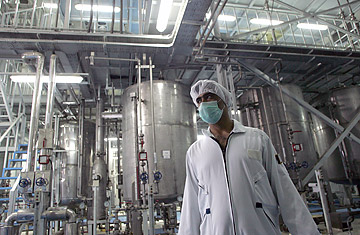

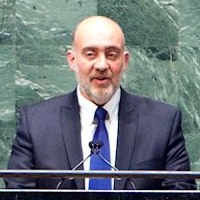
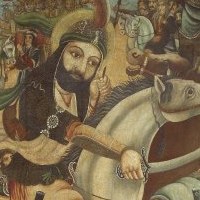
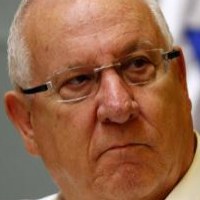
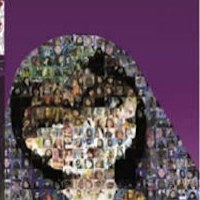




How Would a Nuclear Iran Behave? #iran #freeiran #nuclear http://j.mp/btaeVp
How Would a Nuclear Iran Behave? #iran #freeiran #nuclear http://j.mp/btaeVp http://ff.im/pnuPk
RT @CrethiPlethi: How Would a Nuclear Iran Behave? #iran #freeiran #nuclear http://j.mp/btaeVp http://ff.im/pnuPk
RT @CrethiPlethi: How Would a Nuclear Iran Behave? #iran #freeiran #nuclear http://j.mp/btaeVp